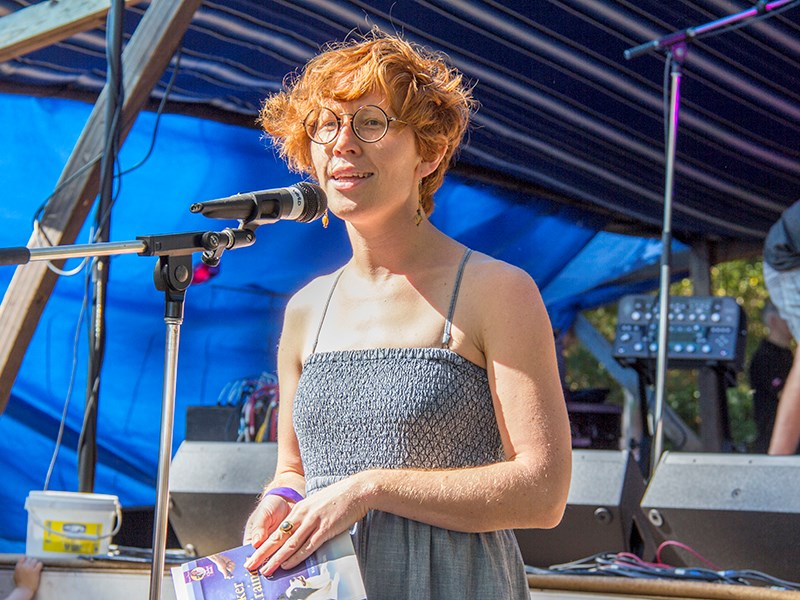Sonia Zagwyn organizes two slam-poetry events a year for Powell River Public Library. She is a poet, by her own right, in the sense that she has studied and written poetry. She is new to slam, which is a competitive poetry event. Zagwyn recently performed spoken word at Sunshine Music Festival.
Are you a slam poet?
Not a slam poet. I would describe myself as a poet. I only came to slam or spoken-word poetry when I moved to Powell River. I wrote a lot of poetry before I moved here, but I didn’t get into the performative aspect of it until I started running the slam for the library.
With your job at the library and organizing slams, do you miss your own poetry?
A bit, yeah. I think working full-time is a challenge to be productive in trying to have an artistic practice. I’ve worked in libraries since I was a teenager. I’m in the environment where books are constantly passing through. I don’t get to read poetry at work, but being able to encourage poetry through some of my work is good for me.
Is there still a demand for poetry?
It’s not the highest circulating item. I think slam is the gateway poetry for a lot of people. It’s energetic. It’s performative. It often rhymes. Most poetry does not. If you take a degree in poetry you’re taught to learn about internal rhyme and slant rhyme and there is all of these different ways you can work with the music of poetry of words but don’t straight up make it rhyme.
Does slam break that rule?
Slam does that. The poets do it to an audience that hasn’t necessarily been exposed to a lot of poetry before. They’re like, “Wow, this is what poetry can be.” And I think more studied poets can learn from slam. It’s about nuance. It’s about thinking about the sounds of words, not just the meanings of words.



